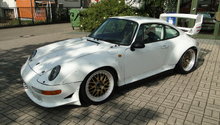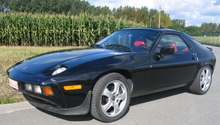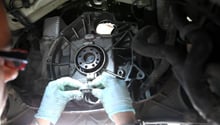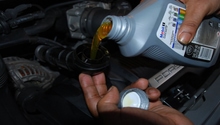Porsche 997: 5 Tips to Keep Your 911 Running for a Long Time
911's exist to be driven. Like any machine, they require general and scheduled maintenance to keep them carrying out their purpose. This article discusses 5 things that can keep you in the driver's seat, racking up the miles on your 911.
This article applies to the Porsche 911 (997) (2005-2012).
Whether you drive your 911 daily or save it for special driving occasions, you are going to put miles on it. There aren't high-performance vehicles that don't require regular maintenance to keep them running at their very best, and the 911 is no exception.
The question that commonly gets asked is what exactly needs to be done to prevent from racking up some costly repair bills? While it is important to focus on specific components to check and/or replace at certain time and mileage intervals, the number one thing to keep in mind is that it all starts with regularly checking and inspecting the car. This can either be done yourself or by having someone who is knowledgeable and skilled enough perform such a task. Usually, the best time to perform these checks is when getting the oil changed because that will be the most frequently scheduled maintenance performed on your car. To make things a little simpler, here are the 5 components/services that will arise most frequently during the operation and ownership of your 997 911.
Component/Service Breakdown
Oil and Filter Change
This is number one because it is truly the most important. Engine oil is the lifeblood of your engine. It MUST be changed on a regular basis. Always remember that different climates and different operating conditions might require different oils or viscosities. Refer to your owner's manual if you need clarification as to which one will work best for your situation.

Brake Fluid Change
The second most frequent and important component you're going to change and/or service on your 997 911 is brake fluid. Brake fluid absorbs moisture from the air over time. This moisture can affect the operation of your braking system. If you go through your owner's manual, you will notice that Porsche recommends that you change the brake fluid quite frequently compared to some of the other fluids and components.

Tire Rotation/Replacement
High-performance vehicles tend to run softer tire compounds than most average vehicles. Unfortunately, softer compounds tend to wear out quicker than other compounds. To keep the performance of your 911 where it should be, this means having to change out tires more frequently than most average vehicles on the road. It just happens to be one of those things that goes along with owning and driving a car of this nature. It is extremely important to inspect them regularly and replace them when needed. Also, don't skimp on tires; tires are the only thing that connects your car to the road, and a loss of traction due to a sub-par tire can have dangerous and damaging results. Make sure that when you do get them changed out, that you also have them balanced and the car aligned when done.

Spark Plug Change
Changing spark plugs is key to optimal engine performance. Fuel that is distributed to consumers these days has a lot of additives in it, and when your engine combusts the fuel and air mixture, there are deposits left behind. This buildup or sediment can foul plugs over time. Along with this, the electrode on the spark plug gets consumed every time the plug sparks. To allow your engine to efficiently and effectively ignite the fuel and air mixture, it must be changed on a regular basis. Don't even bother inspecting them; change them in accordance with your owner's manual, and you should be just fine.
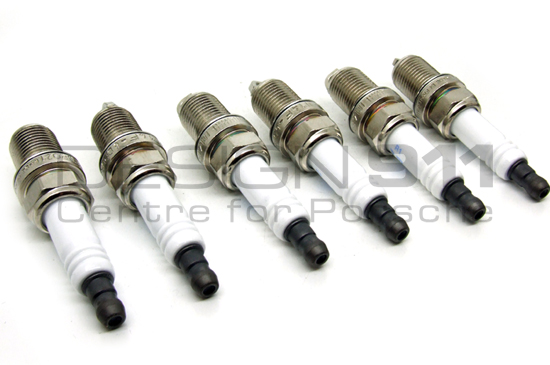
Filter Changes
There are two important filters on your 997 911 that should be changed out on a regular basis to allow your car to operate at its peak performance. The first is the engine air filter. This filter is designed to keep air contaminants from introducing themselves into your engine and causing damage. Over time, this filter can clog up with all kinds of particles, especially if you live in a dusty environment. It is a good idea to change this filter in accordance with the recommendations in your owner's manual to keep your engine operating as it should. A clogged air filter is no good for engine performance or fuel economy. The second filter that needs to be regularly changed out is the cabin particle filter. While this filter is not important for engine performance, it does help keep the cabin clean, and that is helpful for driver performance.
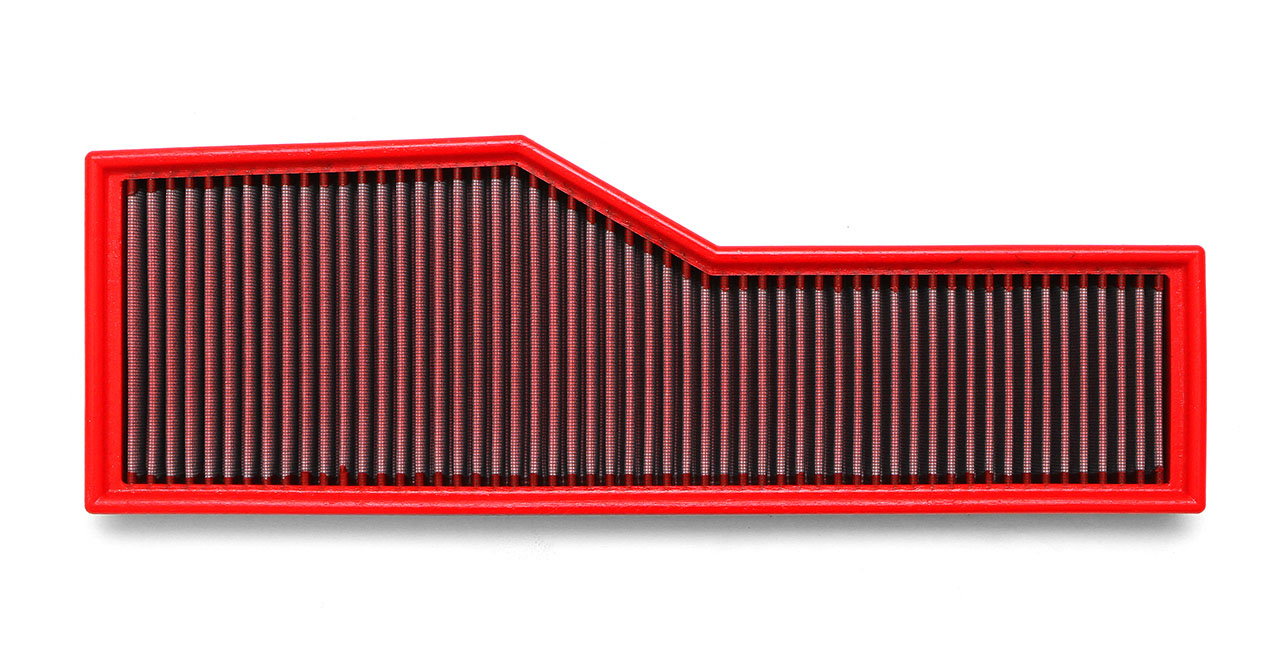
Scheduled Maintenance
All of these key components have scheduled maintenance intervals provided by Porsche. Here they are, along with links to Porsche tables that will provide even more components to inspect/change and at what intervals. Keep in mind that some intervals might differ per specific model.
| Maintenance Item | Schedule |
|---|---|
| Oil change | Every 10,000-12,000 miles or every year |
| Brake fluid change | Every 2 years |
| Tires | Per manufacturer's recommendation |
| Spark plugs | Every 24,000-60,000 miles or every 4 years |
| Air filters | Every 24,000-40,000 miles or every 4 years |
Common Questions
Can I rotate the tires on my Porsche 911 (997)?
Most 997 911's came with staggered tires front and rear. What this means is that the front tires are different sizes than the rears. Because of this, you can't rotate the tires from front to rear, which is the most common and effective way to rotate your tires to allow them to wear evenly. However, you can rotate from left to right as long as the tires you are using do not have a directional tread pattern.
There are so many different choices when it comes to spark plugs; how do I know which ones to choose?
The best way to choose spark plugs for your car is to always go with the stock or OEM replacement. These are going to work the best because they are what the car was designed to use. Do not be fooled by gimmicky spark plug features. The only time you should use a different spark plug is if you have an engine that has been modified, and in that case you should go with what the engine builder or modifier recommends.
Common Issues
Oil System Inadequacy
The predecessor to the engine used in the 997 M96/M97 was air-cooled and dry sump. To save cost, Porsche went to a wet sump system in the M96/M97 engine. The best way to prevent against oil starvation and it becoming a problem is to regularly check the oil level and keep it topped off. If you are going to be doing a lot of high-performance driving, it is recommended to install a deep sump kit, or some other means of increasing the oil capacity.
Air-Oil Separator Failures
This is an emissions device that draws vapors from the crankcase and then reroutes them back into the intake manifold. The unit can fail which will then end up drawing oil instead of vapor and routing it into your intake manifold. This will usually cause a lot of smoke or the engine to run roughly but will not cause immediate damage to your engine.
Related Discussions, Site, and Videos
- Oil Change DIY - YouTube.com
- Brake Fluid Flush DIY - YouTube.com
- Cabin Filter Replacement - YouTube.com
- PDF Download of Porsche Service Intervals - Porsche.com
- 997 Major Service Costs - Rennlist.com
- Air-Oil Seperator Issues - Rennlist.com


